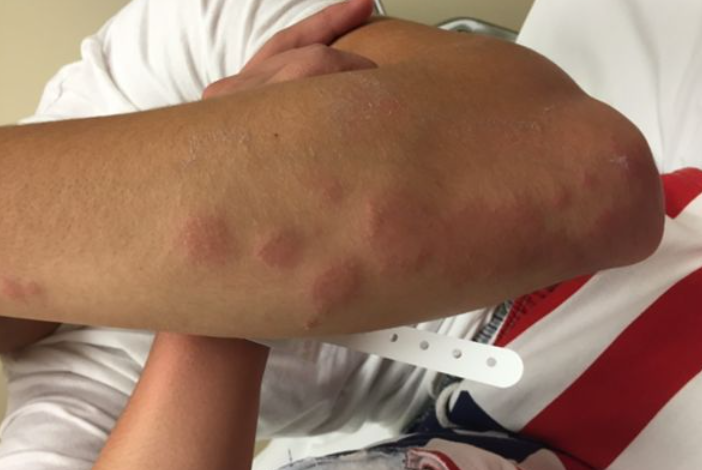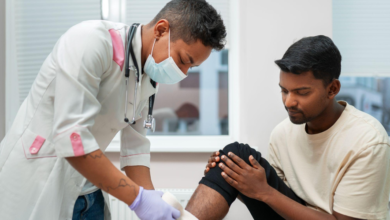Allergic Reactions to Bedbug Bites: What to Do

Introduction
Bedbugs are small, parasitic insects that feed on human blood, usually at night. While their bites are often harmless, some people may experience allergic reactions that can range from mild irritation to severe symptoms requiring medical attention. Understanding how to identify an allergic reaction to bedbug bites and knowing what steps to take can help prevent complications and ensure proper treatment.
This article explores the signs of allergic reactions to bedbug control ( væggelus bekæmpelse ), how to differentiate them from normal bites, and the best ways to manage symptoms. We’ll also discuss prevention strategies to avoid future infestations and bites.
What Do Bedbug Bites Look Like?
Before discussing allergic reactions, it’s important to recognize what typical bedbug bites look like. Common characteristics include:
- Red, raised welts – Similar to mosquito bites but often in clusters or lines.
- Itching and irritation – Mild to moderate itchiness is common.
- Delayed reaction – Some people may not notice bites until days later.
Most people experience only minor discomfort, but those with allergies may have more severe reactions.
Signs of an Allergic Reaction to Bedbug Bites
Allergic reactions occur when the immune system overreacts to proteins in the bedbug’s saliva. Symptoms can vary in severity and may include:
1. Mild Allergic Reactions
- Intense itching – More severe than usual.
- Swelling around the bite area – Larger than typical welts.
- Redness and warmth – The skin may become inflamed.
2. Moderate to Severe Allergic Reactions
- Hives or rash spreading beyond the bite site
- Blisters or skin infections (from excessive scratching)
- Difficulty breathing or wheezing (rare but serious)
- Swelling of the face, lips, or throat (indicating anaphylaxis, a medical emergency)
If severe symptoms like breathing difficulties occur, seek emergency medical help immediately.
What to Do If You Have an Allergic Reaction
1. Clean the Affected Area
- Wash bites with soap and water to reduce infection risk.
- Avoid scratching to prevent secondary infections.
2. Apply Anti-Itch Treatments
- Hydrocortisone cream – Reduces inflammation and itching.
- Calamine lotion – Soothes irritated skin.
- Antihistamines (oral or topical) – Helps control allergic reactions (e.g., Benadryl).
3. Use Cold Compresses
- Apply a cold pack to reduce swelling and numb itching.
4. Monitor for Severe Symptoms
- If swelling spreads or breathing difficulties arise, seek emergency care.
5. Consult a Doctor if Necessary
- If symptoms persist or worsen, a doctor may prescribe stronger steroids or antibiotics (if infection occurs).
See also: Cleaner Ponds: How to Maintain a Clear, Healthy, and Beautiful Pond Year-Round
How to Prevent Bedbug Bites and Allergic Reactions
Since allergic reactions can be troublesome, preventing bedbug bites is the best approach. Here’s how:
1. Eliminate Bedbugs from Your Home
- Inspect bedding, furniture, and cracks for signs of bedbugs (tiny brown bugs, blood spots, or shed skins).
- Use a steamer or professional pest control to kill bedbugs effectively.
- Wash and dry bedding on high heat to eliminate bugs and eggs.
2. Protect Yourself While Sleeping
- Use mattress encasements to trap and starve bedbugs.
- Avoid second-hand furniture unless thoroughly inspected.
3. Travel Precautions
- Check hotel rooms for bedbugs before unpacking.
- Keep luggage off the floor and use sealed plastic bags for clothing. For more read https://vaeggelus-fri.dk/
When to See a Doctor
Most allergic reactions to bedbug bites can be managed at home, but medical attention is necessary if:
- The reaction is severe (swelling, difficulty breathing).
- Bites become infected (pus, increasing pain, fever).
- Over-the-counter treatments don’t relieve symptoms.
Conclusion
While bedbug bites are usually harmless, allergic reactions can cause significant discomfort and, in rare cases, serious health risks. Recognizing the signs of an allergic reaction and knowing how to respond can help manage symptoms effectively. Prevention is key—eliminating bedbugs from your home and taking precautions while traveling can reduce the risk of bites.




